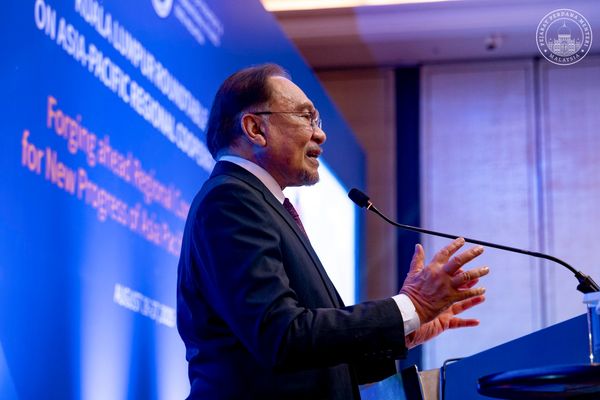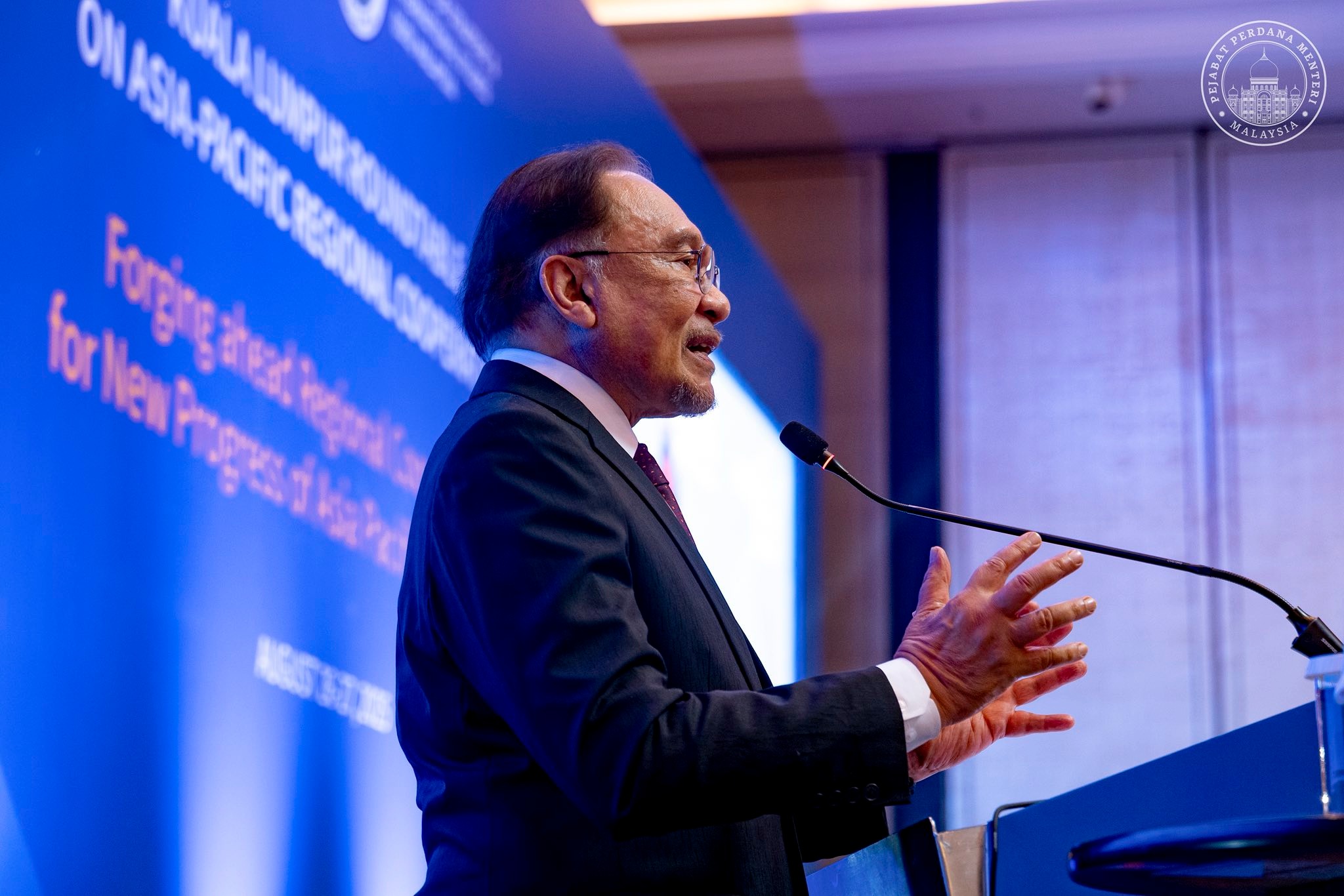KUALA LUMPUR, Aug 27 — Prime Minister Datuk Seri Anwar Ibrahim today said Malaysia, as Asean chair, wants to convene a Regional Comprehensive Economic Partnership (RCEP) summit here in October.
He said the aim is to prove that Asia, as a continent of major economies, can lead the cause of openness even as others turn inwards in the global economic arena.
“RCEP remains one of the few groupings where rivals sit together in dialogue,” he said in his special address at the Kuala Lumpur Roundtable on Asia-Pacific Regional Cooperation of the Boao Forum for Asia here today.
Anwar said the RCEP summit would enable the 15 members, which include the 10 Asean nations, as well as Australia, China, Japan, South Korea, and New Zealand, to take stock and accelerate the implementation of free and open trade policies.
Emphasising that the RCEP remains the largest free-trade area in the world, covering 30 per cent of the global gross domestic product, he said the grouping “must not remain a legal text on paper (but) must be renewed with political energy”.
Anwar also issued a fervent call for Asian countries to work towards becoming a cohesive region by coordinating policies and investment in shared resilience to defend against disruptions by the world’s largest economies.
He made the call amid the global trading system being in distress, with the World Trade Organisation (WTO) being left in a state of near-paralysis as the United States continues to impose devastating tariffs on trading partners with impunity.
Anwar warned that the world’s largest economies are no longer custodians of the system, but its disruptors.
“Tariffs swing wildly. Export controls are imposed and lifted with little warning. Financial sanctions reach far beyond their intended targets. What was once a web of mutual gain is now a network of vulnerabilities,” he said.
For countries in Asia to come together, they could emulate Asean, which offers a model built on open, inclusive and non-exclusive regionalism, said Anwar, who would chair the grouping’s summit with dialogue partners, including several economic superpowers, in October.
As this year’s Asean chair, he said Malaysia is determined to preserve that centrality, not as rhetoric, but as practice.
“That requires deepening the architecture of regional cooperation,” he said, alluding to Asian countries which include superpower China as well as numerous major economies coming together to realise what he calls the “Asian century”.
“If the Asian century is to be realised, it will require deliberate effort, not the least being cohesion as a region, coordination of policies, and investment in shared resilience,” he said.
But he lamented that while Asia’s dynamism is clear, its middle classes growing, digital economies expanding, and trade volumes remaining resilient, “fragmentation is real.”
He said that demographic headwinds in Northeast Asia, unresolved rivalries across the region, and the risk of polarisation all weigh heavily on the continent being more united.
This year, he said Asean and China concluded negotiations for the Asean-China Free Trade Area 3.0, which would be presented to leaders in October.
It now embraces the digital economy, green growth, supply chain connectivity, technical standards, and support for small and medium enterprises.
He said it “reflects the new realities of our time, (whereby) that prosperity today is shaped not only by fair trade, but also by data flows, by digital platforms, and by sustainable energy transitions”.
“For Asean, this FTA demonstrates that engagement with China can be rules-based, inclusive, and future-oriented. At the same time, we must not neglect the wider architecture of the Asia-Pacific,” he said.
Among the challenges for Asia would be the test of sovereign interdependence, which will come most starkly in technology.
Artificial intelligence, automation and digitalisation are remaking the world with startling speed, said Anwar.
He said these disruptions and weaponisation of trade were seemingly being described as a new age of geoeconomics, where trade, finance, technology and security no longer run on separate tracks, but converge as points of rivalry.


